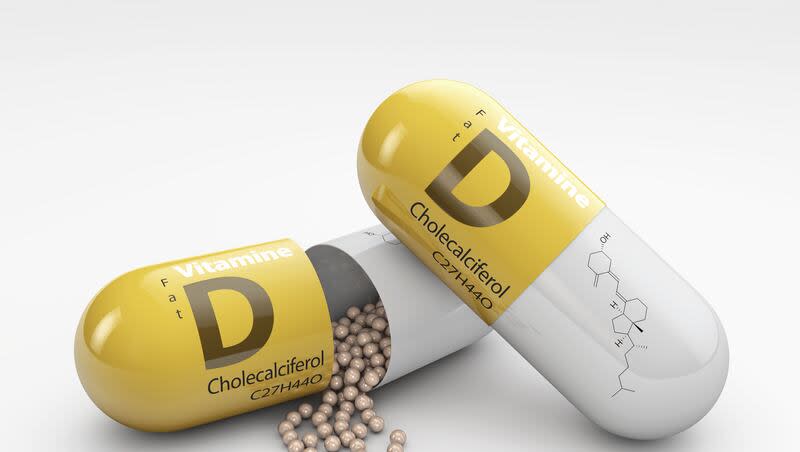Vitamin D and calcium supplements don’t work, according to new study

According to a study published by Annals of Internal Medicine, vitamin D and calcium supplements might reduce risk of death from cancer but increase the risk of death from heart disease. Here’s everything you should know.
What are the results of the study on vitamin D and calcium?
The 22-year study tracked 36,282 older women to assess the impact of combined vitamin D and calcium intake on the risk of hip fractures and mortality rates from cancer or heart disease.
Participants took 1000 milligrams of calcium carbonate with 400 International Units of vitamin D³ daily or a placebo, per the study.
Here are the specific results from the test, per Forbes.
No reduction in the risk of hip fractures.
Reduced death from cancer: 1817 women taking supplements died of cancer. 1943 women in the placebo group died of cancer. Results are statistically significant.
Increased death from heart disease: 2621 women taking supplements died of heart disease. 2420 women in the placebo group died of heart disease. Results are statistically significant.
Women in supplements group had more deaths: Seventy-five more deaths in supplement groups from cancer or heart disease and additional deaths were reported for a variety of other reasons, compared to the placebo group. Not statistically significant.
Statistical significance determines if observed differences between groups or variables are likely real or due to chance. The more statistically significant something is, the more confident scientists are that the variables differ, according to Harvard Business Review.
What are the study’s limitations?
Limitations refer to a study’s shortcomings, such as limited resources, small sample sizes or flawed methodology, which may affect the results or trustworthiness of the study, per Editage.
All studies have limitations. Here are possible limitations, as found in the study.
The study was funded by the National Heart, Lung and Blood Institute of the National Institutes of Health.
The participants had no previous history of breast or colorectal cancer. Other histories of cancer or disease were not recorded.
Overall death comparisons, with the women in the supplement group being higher, was not statistically significant.
Hip fracture and death outcomes were only available on the number of participants in the study.
Participants were only found in the United States. It is not a worldwide study.
It is difficult to separate the effects of vitamin D verses calcium as the study had participants take both (unless taking a placebo).
What do other sources say about vitamin D and calcium supplements?
According to Mayo Clinic, taking vitamin D supplements:
Might not prevent cancer.
Increases cognitive health.
Are used for inherited bone disorder.
Reduces risk of multiple sclerosis.
Helps treat muscle weakness and soft bones.
Prevent or treat osteoporosis.
May treat psoriasis.
Treat rickets, a condition in children.
Per Johns Hopkins Medicine, taking calcium supplements:
Do not prevent hip fractures.
Increase colon polyps (small growths in the intestines that can become cancerous).
Cause kidney stones.
Increases risk of calcium buildup in heart arteries.
Reduces risk of osteoporosis.
Per the study published by Annals of Internal Medicine, Mayo Clinic and Johns Hopkins Medicine, vitamin D and calcium supplements may be harmful or cause no difference to your health. There are some benefits for osteoporosis and bone health.
According to the Alberta Government and Alberta Health Services, bodies do need vitamin D and calcium daily. One should talk to their doctor if they believe they are not getting enough and if supplements are necessary. Sometimes it is best to meet daily needs through diet.
What to eat to get enough vitamin D and calcium
There are many good dietary sources of calcium, per John Hopkins Medicine,
Almonds.
Dried figs.
Garbanzo, pinto and white beans.
Leafy green vegetables, like kale or spinach.
Low-fat dairy, like milk or yogurt.
Oranges.
Soybeans.
According to Harvard T. H. Chan School of Public Health, it may be hard to get enough vitamin D through food if not regularly exposed to sunlight. However, there are some food products that are fortified with vitamin D:
Beef liver.
Cereals fortified with vitamin D.
Cod liver oil.
Dairy and plant milks with vitamin D.
Egg yolk.
Orange juice fortified with vitamin D.
Salmon.
Sardines.
Swordfish.
Tuna fish.

